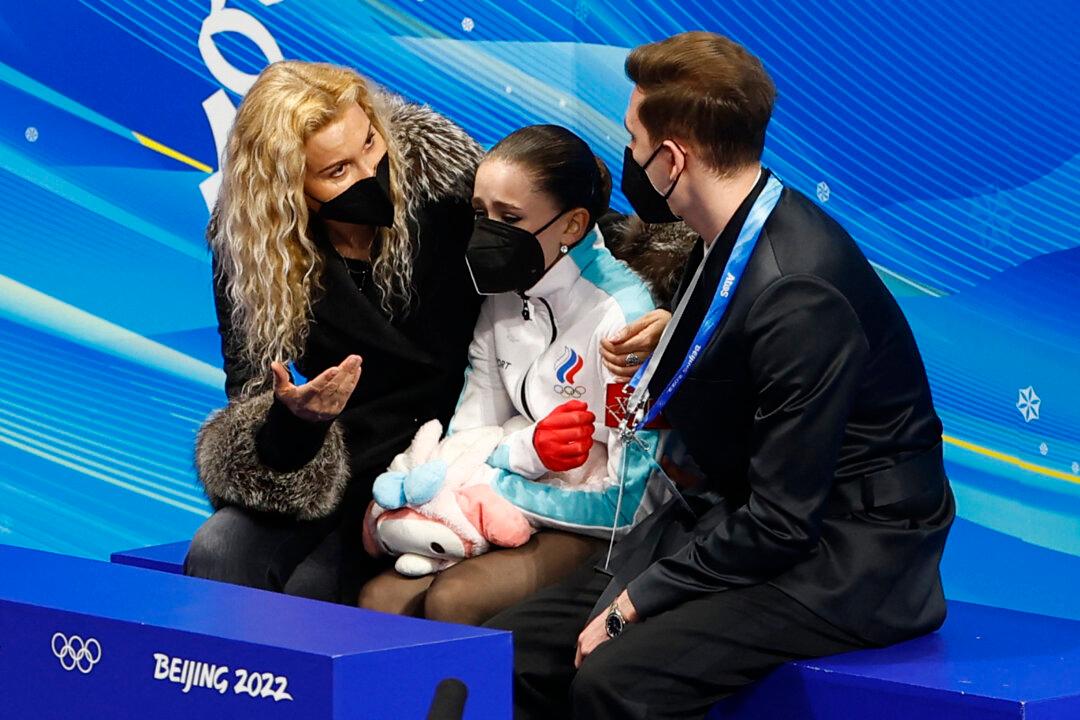BEIJING—The Kremlin on Friday responded to comments by the Olympic chief, in which he said he was “disturbed” watching Russian teen skater Kamila Valieva crumble under pressure and hit out at the 15-year-old’s coach for her “chilling” reaction.
In a press conference earlier on Friday, International Olympic Committee (IOC) president Thomas Bach said he had been “disturbed” watching Valieva’s error-filled fourth place performance in the women’s individual figure skating event at the Beijing Olympics Thursday night.





